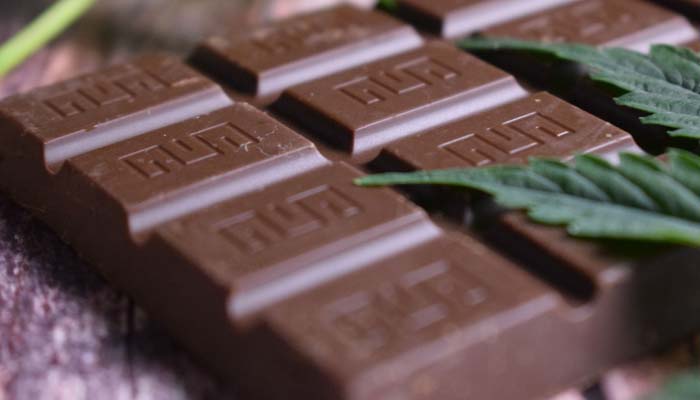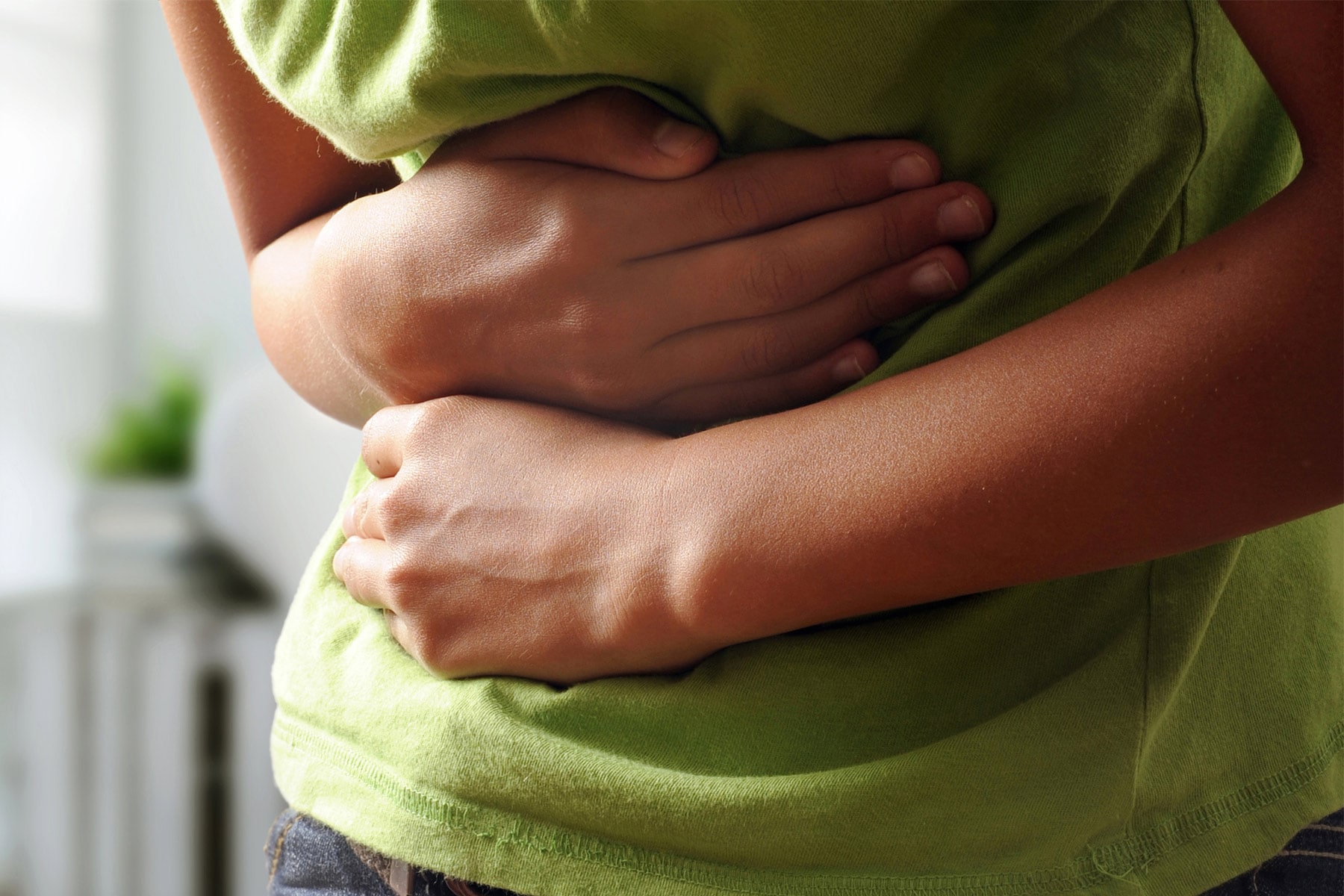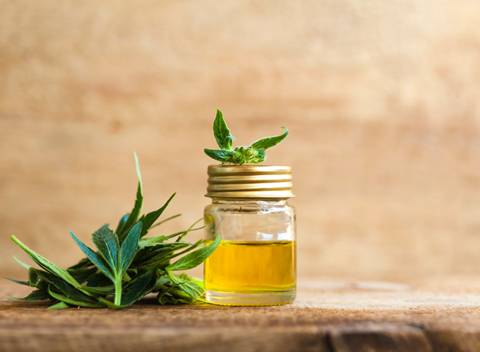
CBD is the latest trend to sweep through the ever-changing health industry, and according to the experts, it is here to stay. With numerous benefits for both body and mind, CBD is becoming the new must-have supplement for your daily regimen. CBD can now be found in coffee shops, smoke shops, gas stations, supermarkets, and more. But what exactly is it?
What is CBD?
CBD, short for cannabidiol, is the second most active compound behind THC(tetrahydrocannabinol) found in cannabis(marijuana). As an essential component of medical marijuana, pure CBD with low levels of THC is derived directly from the hemp plant, which is a cousin to the marijuana plant.
What is the Difference Between CBD and THC?
THC and CBD are both derivatives from the Cannabis Sativa plant, and although they have the same chemical structure, they produce different effects.
Both the THC and CBD molecule consist of 31 carbon atoms, 30 hydrogen atoms, and 2 oxygen atoms. A small variation in the arrangement of the atoms is what causes the difference between the two components. They are molecularly similar to our body’s endocannabinoids found in the endocrine system, allowing CBD and THC to react with our cannabinoid receptors. This interaction affects how the brain releases neurotransmitters responsible for the communication of cells within the body that relay messages such as pain, stress, sleep function, and more.
THC and CBD are both psychoactive chemicals but affect the body in different ways. THC has a profound effect on the brain by strongly binding to the CB1 receptors, which in turn causes the high that marijuana users experience. On the other hand, CBD binds weakly to the CB1 receptors providing the user with all the benefits of marijuana without the euphoric or sedating high.
Is CBD legal?
In 2018 President Donald Trump signed the Farm Bill into law, making CBD legal in all 50 States, depending on the plant it grows on. If it comes from the hemp plant and has a THC percentage of less than .03%, it is legal. If it derives from the marijuana plant and has a THC content higher than .03%, it is considered a schedule 1 substance and is federally illegal. However, 33 states have legalized marijuana medically, and 15 states have legalized marijuana recreationally.
How is CBD consumed?
Users consume CBD in several different ways. The flower can be smoked and vaped like marijuana. It can also be taken orally with a trinket, topically as an ointment, and even used as a bath bomb. CBD could also be infused with food and eaten as an edible such as a chocolate CBD bar.
What is the safest way to consume CBD?
As there is always a risk when inhaling outside substances, the safest way to consume CBD would be to consume it as an edible. CBD edibles come in many forms, such as gummies, cookies, chocolate, Milk chocolate, and more. It is also essential to check your labels as the FDA does not regulate the sale of CBD. Look for CBD products with third-party verification to guarantee that it is tested for cannabinoid concentration. An easy way to ensure the quality of CBD products is to look for Full Spectrum CBD.
What is Full Spectrum CBD?
Full Spectrum CBD is CBD that has all the compounds that make up the hemp plant. Cannabis contains many different compounds, including cannabinoids, terpenes, and flavonoids. THC and CBD are both considered cannabinoids, and each cannabis plant has over 100 of them. Terpenes affect the plant’s fragrance. For example, terpenes in a lime make the fruit smell citrusy. Flavonoids are also found in several different plants and are thought to have therapeutic effects. Full Spectrum is CBD with small amounts of each compound, including THC, enhancing the CBD’s productivity, as opposed to broad-spectrum CBD that removes everything but the CBD cannabinoids.
What are the benefits of CBD?
CBD has many benefits, both physically and mentally. It is used by top athletes, scholars, students, patients, and more.
Physical Benefits
CBD can relieve pain
Before the criminalization and demonization of the cannabis plant in the 1960s, marijuana was used to alleviate pain in human beings for thousands of years. It has recently been discovered that one of the central pain-relieving components of marijuana is CBD. CBD consumption impacts endocannabinoid receptors by interacting with neurotransmitters and reducing inflammation, which profoundly affects chronic pain.
A study was done in 2017, where scientists performed small surgery incisions on male rats then gave them CBD orally and by injection to observe its effect on pain. They concluded that CBD reduced pain responses, nerve pain, and inflammation.
CBD was also shown to reduce pain in people with illnesses such as rheumatoid arthritis and multiple sclerosis.
One study composed of 47 people who have multiple sclerosis was given a drug called Sativex for one month. Sativex is an oral spray consisting of a combination of CBD and small traces of THC. The study found that each participant showed improvements in pain tolerance, walking, and muscle spasms.
CBD Can Reduce Cancer Related Symptoms
In recent studies, CBD was shown to minimize cancer symptoms and cancer treatments’ side effects like nausea, pain, and vomiting. One study examined 177 people who were experiencing high levels of pain due to cancer, where traditional medicine did not work. Some were treated with both CBD and THC, while others were treated with just THC. The study concluded that patients prescribed both CBD and THC showed more significant pain reduction than those given only THC. Scientists are also discovering that CBD may have anticancer properties. One study showed CBD prompted death in human breast cancer cells.
CBD can Cure Acne
CBD has strong anti-inflammatory properties, which reduce sebum production, which is responsible for breakouts.
CBD may Provide Neurological Benefits
Recent studies have shown that CBD is a proven safe and effective treatment for neurological disorders such as epilepsy, Alzheimer’s, multiple sclerosis, and Parkinson’s. One study showed that CBD oil taken orally drastically reduced the number of seizures in a day in children suffering from Dravet syndrome, a severe form of epilepsy. Studies have also shown that CBD improves the quality of life for people suffering from Parkison’s disease.
CBD Benefits Heart Function
CBD has been shown to reduce high blood pressure and benefit the heart and circulatory system. One study gave male participants 600 mg of CBD oil and put them in high-stress situations designed to elevate blood pressure. They found that the group’s blood pressure who had CBD drastically decreased compared to the placebo and showed a small spike in blood pressure during high-stress situations.
Digestion
Research has shown that CBD can help alleviate symptoms in people suffering from digestive issues such as IBS, chromes disease, and more. Because of its anti-inflammatory properties, CBD can help reduce stomach swelling and bloating. CBD is also shown to relieve nausea, calm the digestive tract, soothe the digestive tract, and encourage appetite.
CBD and Drug Addiction
Drug addiction is a massive problem throughout the United States. Recent studies prove that CBD could be a prime candidate in treating users battling an addiction to opioids, cocaine, methamphetamines, alcohol, and tobacco.
A recent study on CBD and heroin addiction proved that CBD could help alleviate cravings when detoxing as well as relieve symptoms such as nausea, vomiting, anxiety, and more. CBD may also help rewire brain circuits related to drug addiction and substance abuse, although more research has to be done.
Other Health Benefits
Research into CBD is relatively new. Although more studies are needed, research shows that CBD positively affects health conditions such as antipsychotic disorders like schizophrenia.
CBD has been shown to reduce tumor size in animals and stop the spread of cancer.
Studies have shown that CBD may also correlate with diabetes prevention.
Mental Effects of CBD
CBD positively affects the mind just as much as the body. It affects how humans think, feel, and interact with the world.
CBD Diminishes Anxiety
A 2015 study published in the Neurotherapeutics Journal, where they analyzed existing studies on CBD’s effect on anxiety patients, concluded that CBD helped relieve forms of anxiety such as social anxiety, general anxiety, OCD, and panic disorder.
CBD and Depression
Depression affects over 17 million people every year in the US, and according to the National Institute of Mental Health, depression is the most common mental disorder. As there are many effective treatments and medications used to treat depression, many patients are finding that the harsh side effects of anti-depressants outweigh the benefits and are looking for a more natural and holistic approach such as CBD treatment. Research shows that serotonin levels play an essential role in depression. Although CBD won’t increase serotonin production, it changes how serotonin interacts with the brain, making the serotonin present more productive, and improves mood.
CBD and Sleep
Sleep is an essential part of overall health and well-being. Strict diets and hard workouts don’t mean a thing without a proper sleep schedule. The average human should be getting anywhere from 6 to 8 hours of sleep each night. According to the CDC, over one-third of US adults don’t get enough sleep. CBD has the potential to improve sleep patterns in adults due to its calming effects.
PTSD
CBD is also known to positively affect patients who have PTSD. PTSD affects 6.1 percent of adults in America, causing nightmares, intrusive thoughts, and re-experiencing traumatic events. CBD has been proven to relieve stress, anxiety, and fix sleep patterns in children suffering from PTSD from sexual and physical abuse.
Benefits of CBD Chocolate
Aside from being delicious, chocolate offers many necessary benefits, including anti-inflammatory properties, antioxidants, and essential minerals. It also stimulates the nervous system, reduces the risk of diabetes, and protects against cardiovascular disease. When combined with CBD, the benefits are enhanced, turning a chocolate CBD bar into a superfood. It is important to note that too much of a good thing can be a bad thing. Chocolate is high and sugar and leads to several health problems, including obesity, high blood pressure, diabetes, and more, so be sure to consume CBD chocolate in moderation.
How is CBD Chocolate Made?
CBD chocolate is made by infusing CBD oil with chocolate. CBD can be added to preexisting chocolate that is melted down into a liquid and molded again. The only issue is that adding CBD to premade chocolate will imbalance the ingredients and affect the chocolate’s flavor. CBD chocolate can be easily made from scratch with just cocoa powder, cocoa butter, and sugar.
How is the Oil Made for CBD Chocolate?
CBD oil is made from extracting flowers from the hemp plant. The flower is then cooked in fat such as hemp seed oil, coconut oil, or melted butter, or cocoa butter. While the flower cooks, the heat in the oil extracts all the flower properties as it is absorbed into the oil.
Are there Different kinds of CBD Chocolate?
CBD chocolate comes in many forms and many different flavors. There is milk chocolate, dark chocolate, chocolate bars, candies, and powders. For lactose-intolerant people, CBD chocolate can be made with milk substitutes such as almond milk or coconut milk. CBD coconut milk chocolate is a fantastic healthy option.
Interested in CBD?
Since the human body differs in many ways, CBD’s effect could change depending on the individual. It is important to contact a physician before adding CBD to a daily regimen.




